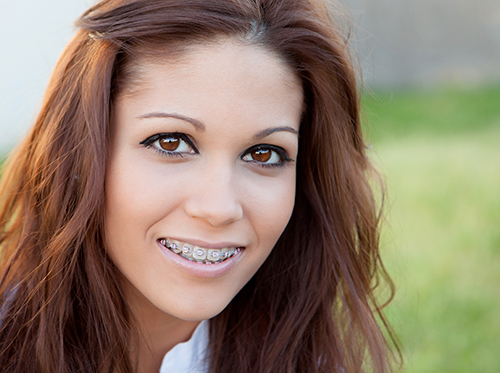August 22nd, 2018

When a child is born, he or she will have 20 primary teeth and 32 permanent teeth. But sometimes kids are born with additional teeth, and our team at Rubin Orthodontics calls this oral condition "hyperdontia." Primary teeth are the first set of teeth that erupt in your child's mouth, typically by the time they are 36 months old, and are shed by the time your child reaches the age of 12. Permanent teeth then take the place of the primary teeth and are usually fully-erupted by the time your son or daughter reaches 21 years of age. Anyone who develops more than 20 primary teeth or more than 32 permanent teeth has hyperdontia, and the additional teeth are referred to as supernumerary teeth.
While the cause of hyperdontia is not entirely clear, it is believed that there may be a genetic factor. Oral professionals have found that patients with extra teeth often have syndromes like cleidocranial dysplasia, Ehler-Danlos syndrome, Gardner syndrome, or cleft lip and palate. The prevalence of hyperdontia affects between one and four percent of the population in the United States, and the majority of cases are limited to a single tooth.
So, what is the best way to deal with hyperdontia? It really depends on the case. The treatment plan your doctor suggests varies according to the potential problem posed by the supernumerary teeth, as well as their type. Orthodontic treatment may certainly may help, but extraction can also be a good option. We recommend that children receive an oral evaluation or checkup no later than the age of seven. In addition to hygiene evaluation, this helps ensure your child does not experience hyperdontia problems.
If you suspect you or your child may be suffering from hyperdontia, please give us a call to schedule an appointment at our convenient Far Rockaway office to be evaluated.
August 15th, 2018

A solid oral health routine begins with daily brushing, flossing, and rinsing. Without a consistent oral health regimen, you may begin to experience tooth decay and bacterial infections. Few patients ask Dr. Rubin about different mouthwash options, so we’ve put together a list of the conditions that mouthwashes can treat. This should help you decide which oral rinse would be best for you.
Gum Health
Antiseptic mouthwashes reduce large amounts of bacteria on and near the gum line and generally help to decrease your chances of developing gingivitis. The key ingredients of antiseptic mouthwashes are antibacterial and antimicrobial items. Antiseptic mouthwash is a preferable option if you are concerned about the general gum health of your mouth.
Fluoride
Fluoride is a great tool for preventive tooth decay treatment. It prevents tooth decay and is great for oral health in general because it kills germs that can live in your mouth. Fluoride also builds stronger teeth. If you’re a bottled water drinker, Dr. Rubin may recommend that you purchase a simple fluoride rinse to use after brushing.
Bad Breath
Fluoride mouthwash can be used to fight any bad breath issues you may be facing. It’s designed to combat any bacteria that might be building up in your mouth. Most mouthwashes will help eliminate bad breath, but some are specifically designed to address this difficult problem. If you feel as though this might be turning into a chronic problem, please contact Dr. Rubin to discuss other options that would be effective for treating your symptoms.
American Dental Association (ADA Approval)
The ADA reviews all mouth rinses for safety measures and to prove effectiveness. Any mouthwash approved by the ADA has met strict guidelines according to whether the manufacturer’s claims are supported with scientific evidence. If you’re looking for a quality mouthwash, look for one that has the ADA seal of approval to ensure you have a great rinse for your mouth.
Considerations
When you’re trying to decide which mouthwash to pick, contact our Far Rockaway or ask Dr. Rubin during your next appointment. If you experience a burning sensation in the soft tissues of your mouth, be sure to discontinue use immediately. Avoid letting children under age six use a mouth rinse, and be sure to keep all mouthwashes out of the reach of children, because they contain alcohol and other substances that could be harmful.
August 8th, 2018

Straighter teeth is something many people desire. A nice smile is one of the most attractive things about a person. However, wearing a mouth full of braces for two, three, or more years can be a major pain, both literally and figuratively.
Luckily, there is another option. Invisalign is an alternative to traditional braces. Learn more about the benefits Invisalign offers and why you should consider this exciting method of straightening teeth.
- When you have straight teeth, your mouth is healthier in general and there is less chance of tooth decay and gum disease. Invisalign makes it possible for more people to straighten their teeth.
- Invisalign is essentially invisible. You can straighten your teeth without unsightly metal in your mouth.
- The average cost is similar to that of traditional braces, which makes it affordable for many families.
- With Invisalign, the aligner trays are smooth and comfortable to wear. Traditional metal braces can be uncomfortable and cause irritation to the mouth.
- Invisalign is removable, so you do not have to wear the system during special occasions, or when you’re eating. With normal metal braces, you are stuck with them for the entire straightening process.
- Brushing and flossing are simple. Since the system is removable, you can brush and floss just like normal.
As you can see, Invisalign is an exciting option we provide at Rubin Orthodontics for those who want straighter teeth. If this is something that sounds interesting to you, talk to Dr. Rubin and find out if it would work for your particular situation. Get started today, and before you know it you will be enjoying your straighter teeth.
For more information about Invisalign, or to schedule an initial consultation with Dr. Rubin, please give us a call at our convenient Far Rockaway office today!
August 1st, 2018

Clear aligners like Invisalign® have become increasingly popular over the past several years and rightly so. They’re removable, easier to clean than braces, and hardly anyone knows you're wearing them. They are great in treating many cases, but they aren't for everyone.
Below, Dr. Rubin and our team cover some of the instances where clear aligners just aren't the answer:
- If drastic tooth movement is required – Fixed appliances deliver much more significant tooth movement. So if your case is a drastic one, clear aligners may not be the best choice.
- If you need to move molars – Molars have much stronger roots than your other teeth and would require significantly longer to move with clear aligners. A fixed appliance is the best choice in this instance, especially if you have a substantial overbite or underbite that needs to be dealt with.
- If you're the type who often forgets or loses things –If you would forget to wear your aligners for the prescribed amount of time (usually at least 22 hours per day), clear aligners are probably not the best choice for you. Forgetting to wear them can delay treatment and even make it so you need to regress to the previous set of aligners to be able to move forward with treatment. And let's face it, if you're not careful, removable aligners are easy to lose. Losing aligners delays treatment and is expensive since you need to buy replacements to stay on course. Replacing a lost set of aligners usually takes between seven and ten days—a definite setback in treatment.
- If you're looking for the fastest treatment possible – Clear aligners usually can't move teeth as quickly as fixed appliances. So if you're looking for the fastest way to achieve your desired result, clear aligners may not be the best bet.
Feel free to talk with Dr. Rubin about your options regarding braces and clear aligners. We know there are pros and cons to both, so let’s find the option that works best in your life and for your specific needs in terms of treatment. Schedule an appointment at our Far Rockaway office today!





